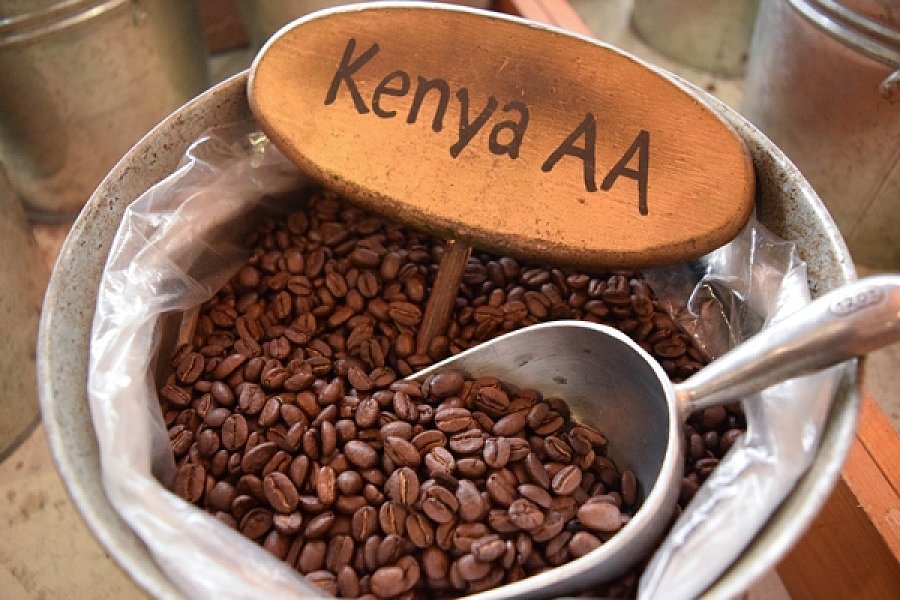Last month, my friend Mueni bought a 250-grammes packet of Kenyan coffee beans in Paris at 9 Euros (Sh1,200). This means that 1 kilo of these coffee beans goes for Sh4,800. Meanwhile coffee farmers in Kenya are being paid between Sh90 – 110 per kilo. Although there are many variables that contribute to the eventual price of coffee in foreign markets like France, it’s clear that Kenyan coffee farmers earn substantially less than they should. Yet as the actual coffee producers, they are the most important components of the coffee value chain.
Recently, a 50-kilogramme bag of coffee fetched Sh23,095. The previous price had been Sh22,113. The Nairobi Coffee Exchange (NCE) attributed this price increase to better quality of the coffee bean. Unfortunately, just as is the case with high coffee prices in the West, farmers are not automatic beneficiaries of this increase.
Kenya has about 800,000 small scale coffee farmers and millions of cash crop farmers. They are the real cash crop champions and must be fully facilitated to produce high yield, high quality cash crops that will earn the country billions in foreign exchange annually.
Several Counties in Kenya are blessed with cash crops. Apart from coffee and tea which are our main cash crops, the others include pyrethrum, cotton, tobacco and rice. They have all been plagued with so many challenges over the years that it was not uncommon for farmers to uproot their crops.
A time has come for us to transform our cash crops into wealth crops that create wealth for generations of farmers. For this to happen, we must take three major steps.
Firstly, we must know our competitors and produce optimal yields to meet the needs of an ever-growing market. The global market is a brutal battleground where only the best and brightest survive. Even Brazil, which is the world’s leading coffee producer, lost some market share in 2020 and 2021. This was occasioned by bad weather. Other coffee producers like Kenya seized this opportunity to expand their market share. Brazil is however back, which means that the global coffee market is more competitive this year.
Coffee is the second most traded commodity in the world. More than nine billion kilograms of coffee are produced annually. In Africa, Ethiopia is the leading coffee producer, followed by Uganda, Ivory Coast and Tanzania. Kenya comes in fifth according to business insider Africa. In the eighties, Kenya’s coffee production peaked at 130,000 metric tonnes. Today, we are producing less than 50,000 tonnes. We must reclaim our lost glory not just in coffee but several other cash crops like cotton and pyrethrum.
Secondly, we can only conquer the global market if we produce world class cash crops whose quality is assured.
Late last year, Japan warned Kenya about the use of non-recommended pesticides in coffee production. Because of this, Kenya was at risk of losing the Sh1.5 billion Japanese coffee market. The previous year in 2020, South Korea banned Kenya’s coffee because it contained high levels of Ochratoxin, a harmful chemical. We cannot keep making such inexcusable blunders. The Ministries of Agriculture and Trade must ensure and guarantee the quality of our agricultural products.
Finally, these measures can only be successful through good cash crop governance in the National Government, County Government, Cash Crops Factories, Farmers Cooperatives and the entire cash crop value chain.
We often focus a lot on the cartels and middlemen who eat into farmers’ earnings. However, they are only able to do so because of bad governance at all levels, including foreign players who collude with and enable them.
Kenya’s coffee must primarily benefit coffee farmers and all Kenyans as a whole. The same applies to all the other cash crops. Anything less than this must not be tolerated. Doing so will compromise the wealth of this generation of Kenyans and future generations. Think green act green.



